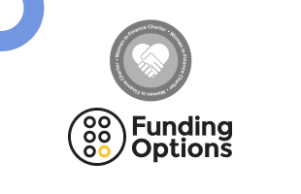Funding Options Blog
Home of our blog articles on topics that will inform and educate entrepreneurs on topics such as lending, green finance, tax and financial matters.

5 Things to Know about Coronavirus Business Interruption Loan Scheme
The Coronavirus Business Interruption Loan Scheme (CBILS for short) provided SMEs experiencing revenue loss and cash flow disruption due to the COVID-19 pandemic with access to financial support of up to £5 million. Whilst the scheme is now closed, it was part of the UK government’s wider temporary and targeted support for businesses package and was administered through loans, overdrafts, invoice finance and asset finance. There is still support available for larger companies via the COVID-19 Corporate Financing Facility. Through this scheme, the Bank of England will buy short term debt from larger firms that are experiencing a short-term funding squeeze, enabling them to finance their short term liabilities.
1 Apr 2020
A letter to the Treasury
Dear Rishi Sunak MP, On behalf of the UK’s SMEs, entrepreneurs, and sole-traders, we want to thank you and your team for your tireless efforts to minimise the impact of COVID-19 on business. It’s a really tough time for business owners across the country, and the economic packages you’ve presented to date go a long way to mitigating their worries.
27 Mar 2020

Compare UK business credit cards 2020
Having a business credit card can help you manage expenses and cash flow in a convenient and flexible way. It can be used by both you and your employees to make company purchases and can help you build up your business’ credit rating. Much like a personal credit card, you can choose to pay the balance in full or meet the minimum payment requirements. Your business is responsible for making the payments. Credit cards are a type of unsecured lending and the and limits can be quite strict. Of course, have to meet the lender’s criteria - they’ll want to look into your credit history, trading history, turnover and profit. Your credit limit - usually anywhere between £1,000 and £10,000 - will very much depend on your credit rating, as will your interest rate, interest-free period and rewards.
24 Mar 2020
Covid-19: Financial help for small businesses in the UK
It’s a challenging time for SMEs around the world as the economic impact of the Coronavirus pandemic starts to unfold. Global shares have taken a hit, interest rates have been cut and the OECD has downgraded its growth forecasts as factories close to help contain the virus. On Friday 20 March, Rishi Sunak, the Chancellor of the Exchequer, announced the first set of measures to help businesses impacted by COVID-19. The government has pledged support for businesses through the Coronavirus Business Interruption Loan Scheme and other temporary and targeted measures. These are designed to help companies manage cash flow during this difficult period through unlimited loans and guarantees. An initial £330 billion of guarantees will be made available, which is equivalent to 15% of UK GDP. Bear in mind some aspects of business support are devolved and differ in Scotland, Wales and Northern Ireland. Full information and relevant links can be found on the government's support for businesses page.
23 Mar 2020
The ultimate guide to working capital
A steady flow of working capital is vital for any business hoping to achieve long-term success. A company can have significant assets and profitability, yet find themselves unable to survive due to lack of working capital. This guide is for business owners interested in finding out more about working capital and how to calculate it, as well as those searching for sustainable practices that will help them optimise their flow of working capital.
18 Mar 2020

Independent businesses applied for a record £102m in loans during 48 hour window as COVID-19 cashflow fears take hold
Funding Options, the marketplace for business finance, is working hard to support independent UK businesses following a rapid increase in the number of loan applications. Around 1,884 businesses in the UK applied for £101,937,336 in loans during a 48 hour window.
18 Mar 2020
How to register a limited company - checklist
There are numerous benefits associated with registering your business as a limited company. For instance, incorporating can help you build brand credibility and protect your personal assets. The process isn’t as long as it used to be and can take just a few hours. When you’re ready to register your business as a limited company, you’ll have to submit an application form to Companies House via the HMRC website. You can also download the form in PDF format and submit it manually. Some people decide to use a third party (such as their accountant) to process the application. Either way is fine! The following checklist will help you prepare the information you need to complete the application process smoothly.
17 Mar 2020

Deeds not words: why we’ve signed the Women in Finance Charter
“Inclusivity” is a buzzword — one that means very little without action. That’s why we’ve chosen to make our commitment to achieving gender equality in our organisation public by signing the Women in Finance Charter. We’re part of a growing movement of forward thinking companies on a mission to create a more inclusive environment. Not just within our own company, but the sector as a whole.
9 Mar 2020

Funding Options signs the Women in Finance Charter
The data-driven lending platform sets new targets for itself, and introduces new flexible working policies.
3 Mar 2020
Subscribe to our newsletter today
Sign up for the best of Funding Options sent straight to your inbox.